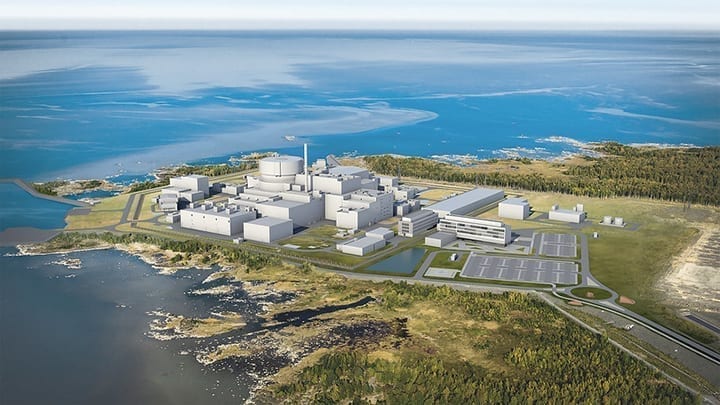Regulator Conducts Skype Inspection for Nuclear Power Project
Finland’s Radiation and Nuclear
Safety Authority (STUK), which regulates the nation’s nuclear power industry,
completed a scheduled inspection of RAOS Project via Skype due to quarantine and
travel restrictions caused by the COVID-19 pandemic.
RAOS Project is a subsidiary of Rusatom Energo International, a division of Russia’s state atomic energy corporation Rosatom. RAOS Project is the plant supplier of Fennovoima’s Hanhikivi 1 nuclear power plant (NPP), which is being built on the Hanhikivi peninsula (Figure 1) in Pyhäjoki, Finland.

The engineering, procurement, and construction contract for the Hanhikivi plant was signed in December 2013. Under the agreement, RAOS Project will supply a VVER-1200 Generation III+ reactor with capacity of 1,200 MW. To date, the project is still in the licensing stage with preparatory works being performed at the construction site.
The STUK inspection occurred
over a three-day period April 20–22 and was conducted remotely in Skype-conference
mode. More than 30 RAOS Project personnel were involved in the assessment
including specialists from the engineering, configuration, requirements
management, quality management, licensing, and project management departments.
In its quarterly update for the first quarter of 2020, Fennovoima reported it was focused on reviewing basic design documentation and licensing documents. The company said RAOS Project was continuing necessary design work so the project’s Preliminary Safety Analysis Report (PSAR) could be completed. Fennovoima officially submitted the first part of the PSAR to STUK for approval in December 2019. The PSAR is reportedly a key deliverable for the NPP’s construction license application. The team’s goal is to obtain the construction license in 2021.
RAOS Project reported that the STUK
inspection allowed “three out of the existing five requirements” for the
project to be closed. The company will continue working on the remaining two regulatory
requirements.
Meanwhile, STUK opened a new
requirement related to the Hanhikivi project management system. The regulator stressed
the need for RAOS Project to actively address project management issues related
to the construction phase. Furthermore, STUK will reportedly continue to assess
the project management organization throughout the full lifecycle of plant construction
including a six-month transition period, the construction and installation
phase, and NPP start-up works.
While the Skype inspection was
one remedy forced to be utilized as a result of the coronavirus, a number of other
measures have also been taken to ensure the health and safety of the staff, while
maintaining the continuity of work and progress on the project. Fennovoima said
it—together with RAOS Project—is constantly monitoring conditions and updating
the operating instructions according to both the virus situation and the directions
of the authorities. During the pandemic, most office workers have switched to
remote work and meetings are being held as video conferences.
Still, construction work and required
training have continued; however, the company has limited the number of people permitted
to attend meetings and training on-site. Fennovoima reported the project is
currently progressing on schedule, but it said the potential future effects of
the coronavirus are difficult to predict.
The next STUK inspection of RAOS Project is scheduled in the fourth quarter of 2020. The Hanhikivi unit is expected to start commercial operation in 2028.
—Aaron Larson is POWER’s executive
editor (@AaronL_Power, @POWERmagazine).